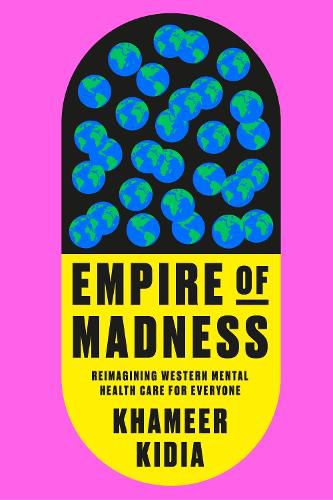Readings Newsletter
Become a Readings Member to make your shopping experience even easier.
Sign in or sign up for free!
You’re not far away from qualifying for FREE standard shipping within Australia
You’ve qualified for FREE standard shipping within Australia
The cart is loading…






An urgent rethinking of the Western approach to mental health, which treats the symptoms rather than the exploitative systems causing our distress-by a Rhodes Scholar and Harvard Medical School physician-anthropologist-offering lessons from the rest of the world.
An urgent rethinking of the Western approach to mental health, which treats the symptoms rather than the exploitative systems causing our distress-by a Rhodes Scholar and Harvard Medical School physician-anthropologist-offering lessons from the rest of the world.
What if the mainstay of mental health care involved cancelling onerous debt, giving poor people free housing, and paying reparations to the descendants of slavery and colonialism? In Empire of Madness, Dr. Khameer Kidia re-evaluates the Western approach to mental health, which medicates symptoms instead of changing the structures that harm the human psyche. A physician and researcher whose own family suffers from the psychological effects of colonialism, Kidia highlights the limitations of the Western mental health model by reporting from the front lines of mental health crises at home, in the clinic, and during a decade of fieldwork.
Clear-eyed and openhearted, Kidia asks the nuanced questions unaddressed by our current mental health model- How do history, culture, and politics shape mental distress? Are hoarding and burnout medical diagnoses or social problems? Why are schizophrenia outcomes sometimes better in poor countries without antipsychotics? Can a traditional healer treat mental illness better than a Western-trained clinician? For those living in poverty, can cash replace pills?
With rigorous research, cutting analysis, and illuminating prose, Kidia invites us to reimagine mental health as a global idea where our wellbeing is mutual and everyone's voice-patients, caregivers, and healthcare workers alike-matters.
$9.00 standard shipping within Australia
FREE standard shipping within Australia for orders over $100.00
Express & International shipping calculated at checkout
Stock availability can be subject to change without notice. We recommend calling the shop or contacting our online team to check availability of low stock items. Please see our Shopping Online page for more details.
An urgent rethinking of the Western approach to mental health, which treats the symptoms rather than the exploitative systems causing our distress-by a Rhodes Scholar and Harvard Medical School physician-anthropologist-offering lessons from the rest of the world.
An urgent rethinking of the Western approach to mental health, which treats the symptoms rather than the exploitative systems causing our distress-by a Rhodes Scholar and Harvard Medical School physician-anthropologist-offering lessons from the rest of the world.
What if the mainstay of mental health care involved cancelling onerous debt, giving poor people free housing, and paying reparations to the descendants of slavery and colonialism? In Empire of Madness, Dr. Khameer Kidia re-evaluates the Western approach to mental health, which medicates symptoms instead of changing the structures that harm the human psyche. A physician and researcher whose own family suffers from the psychological effects of colonialism, Kidia highlights the limitations of the Western mental health model by reporting from the front lines of mental health crises at home, in the clinic, and during a decade of fieldwork.
Clear-eyed and openhearted, Kidia asks the nuanced questions unaddressed by our current mental health model- How do history, culture, and politics shape mental distress? Are hoarding and burnout medical diagnoses or social problems? Why are schizophrenia outcomes sometimes better in poor countries without antipsychotics? Can a traditional healer treat mental illness better than a Western-trained clinician? For those living in poverty, can cash replace pills?
With rigorous research, cutting analysis, and illuminating prose, Kidia invites us to reimagine mental health as a global idea where our wellbeing is mutual and everyone's voice-patients, caregivers, and healthcare workers alike-matters.